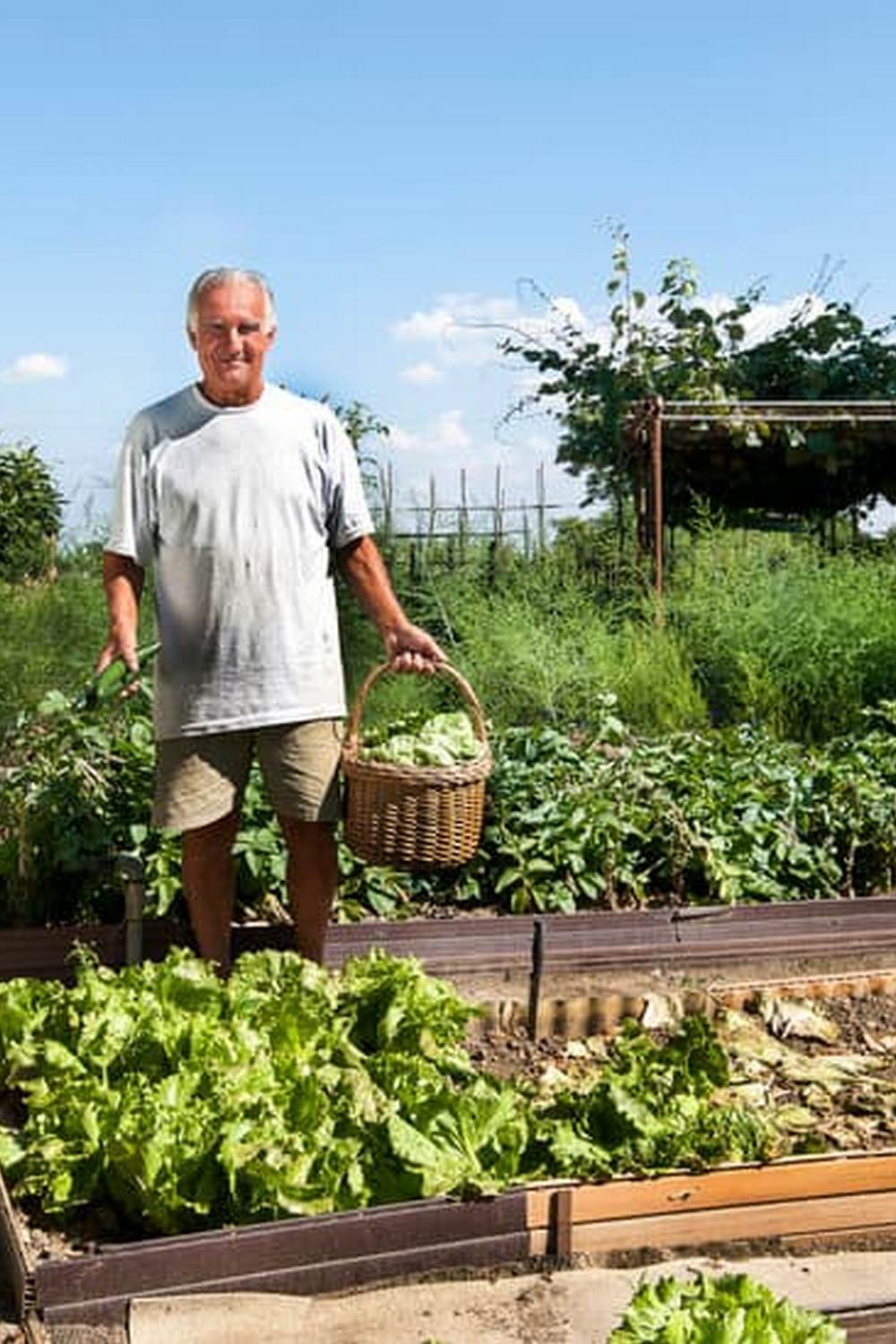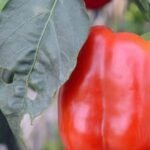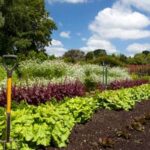Mulching plays a vital role in the health and productivity of vegetable gardens, acting as a protective barrier against weeds, retaining moisture, and regulating soil temperature. One common question that arises among gardeners is: “Is brown mulch safe for vegetable gardens?” Understanding the different types of mulch available is crucial in making informed decisions for your garden’s well-being.
Brown mulch is just one option among many when it comes to mulching materials. It offers numerous benefits such as enhancing soil fertility, reducing erosion, and improving overall plant growth. However, concerns often arise regarding the safety of using brown mulch in vegetable gardens due to misconceptions about its chemical composition and potential impact on plant health.
To ensure that your vegetable garden thrives while using brown mulch, it’s essential to delve into the scientific evidence and research supporting its safety. By understanding the chemical composition of brown mulch and following recommended guidelines for application, you can confidently incorporate this type of mulch into your gardening practices without compromising the health or quality of your produce.
Different Types of Mulch
When it comes to mulching in vegetable gardens, there are various options available to choose from. One popular choice among gardeners is brown mulch, which not only adds aesthetic appeal to the garden but also provides numerous benefits for plant growth. Brown mulch is typically made from natural materials such as shredded bark, wood chips, or straw, making it a sustainable and eco-friendly option for mulching.
Benefits of Brown Mulch
Brown mulch offers several advantages when used in vegetable gardens. Firstly, it helps retain soil moisture by reducing evaporation and minimizing water runoff. This is especially beneficial during hot summer months when plants require consistent watering.
Additionally, brown mulch helps regulate soil temperature, keeping the root systems of plants cool in the heat and insulating them against cold temperatures in the winter. The breakdown of brown mulch also enriches the soil with essential nutrients over time, promoting healthy plant growth and productivity.
Concerns About Using Brown Mulch
Despite its many benefits, some gardeners may have concerns about using brown mulch in vegetable gardens. One common concern is whether brown mulch is safe for edible plants.
There may be worries about potential chemicals or toxins present in the mulch that could leach into the soil and be absorbed by the vegetables. Addressing these concerns through proper understanding of the composition of brown mulch and taking necessary precautions can help ensure that it is safe to use in vegetable gardens.
Benefits of Using Mulch in Vegetable Gardens
Mulching plays a vital role in the success of vegetable gardens by providing numerous benefits to the plants and soil. One of the primary advantages of using mulch is moisture retention. By layering mulch around plants, the soil underneath stays moist for longer periods, reducing the frequency of watering needed.
This is especially crucial during hot summer months when water evaporates quickly from the soil. Additionally, mulch helps to regulate soil temperature, keeping it cooler in the summer and warmer in the winter, providing a more stable environment for plant roots to thrive.
Another important benefit of using mulch in vegetable gardens is weed suppression. Mulch acts as a barrier that prevents weed seeds from germinating and growing, reducing competition for nutrients and water among your vegetable plants. This not only saves time and effort in weeding but also promotes healthier growth for your crops.
Additionally, mulch helps improve soil structure over time as it decomposes, adding organic matter to the soil and promoting beneficial microbial activity. This results in improved nutrient availability for plants and better overall soil fertility.
In addition to moisture retention, weed suppression, and soil improvement, using mulch in vegetable gardens can also help reduce erosion caused by heavy rain or wind. Mulch creates a protective layer over the soil surface, preventing it from being washed or blown away.
This is particularly beneficial for sloped areas where erosion is more likely to occur. Overall, mulching is a simple yet effective practice that can greatly enhance the health and productivity of your vegetable garden, making it a worthwhile investment for any gardener looking to achieve successful harvests year after year.
Common Concerns About Using Brown Mulch in Vegetable Gardens
When considering mulching options for your vegetable garden, one common concern that may arise is whether brown mulch is safe to use. There are various misconceptions about the safety of brown mulch in vegetable gardens, but understanding its composition and potential impact can help alleviate those worries.
Here are some key points to consider when addressing safety issues and misconceptions related to using brown mulch in vegetable gardens:
- Chemical composition: Brown mulch is typically made from shredded bark, wood chips, or a combination of organic materials. These natural components are safe for use in vegetable gardens as they decompose over time, enriching the soil with essential nutrients.
- Potential herbicides: One concern with using brown mulch is the presence of residual herbicides that could harm vegetables. However, most commercial brown mulches are processed at high temperatures, which effectively breaks down any harmful chemicals. It is still important to read labels and choose organic or herbicide-free options.
- Soil contamination: Some gardeners worry that brown mulch may introduce contaminants into the soil, affecting plant growth. As long as the brown mulch is applied correctly in thin layers and not directly touching plant stems, it should not pose a risk of contamination. Regular monitoring and proper maintenance practices can help address any potential issues.
Overall, when used correctly, brown mulch is safe for vegetable gardens and can offer numerous benefits such as moisture retention, weed suppression, and soil improvement. By understanding the composition of brown mulch and following recommended guidelines for application, you can enjoy a healthy and thriving vegetable garden while utilizing this sustainable gardening practice.
Chemical Composition of Brown Mulch
Brown mulch is a popular option for vegetable gardens due to its natural appearance and ability to retain moisture in the soil. Understanding the chemical composition of brown mulch is important in determining its safety for use in vegetable gardens. Brown mulch is typically made from organic materials such as bark, wood chips, and leaves. These organic materials are broken down by fungi, bacteria, and other microorganisms to create a rich humus that enriches the soil.
Here are some key components found in brown mulch:
- Cellulose: A structural component found in plant cell walls that provides strength and support.
- Hemicellulose: Another type of carbohydrate found in plant cell walls that helps with nutrient absorption.
- Lignin: A complex polymer that gives plants rigidity and resistance to decay.
The decomposition process of brown mulch releases nutrients into the soil, making it beneficial for vegetable plants. These nutrients include potassium, nitrogen, phosphorus, and other essential elements that promote healthy growth. However, it is essential to ensure that the brown mulch used in vegetable gardens is free from any harmful chemicals or contaminants that could potentially harm the plants or impact human health.
Research has shown that properly sourced and prepared brown mulch is safe for use in vegetable gardens. As long as it does not contain treated wood or any toxic substances, brown mulch can be a valuable addition to your garden. It is always recommended to check the source of your mulch and opt for natural options to guarantee the safety of your vegetables and surrounding environment.
Research on the Safety of Brown Mulch in Vegetable Gardens
When it comes to choosing the right mulch for your vegetable garden, one common question that arises is whether brown mulch is safe for use. Understanding the safety of brown mulch in vegetable gardens is essential to ensure a healthy and thriving garden. Research on this topic has shed light on the potential benefits and concerns associated with using brown mulch in vegetable gardens.
Chemical Composition of Brown Mulch
Brown mulch is typically made from natural materials such as wood chips, bark, or shredded leaves. These organic materials break down over time, enriching the soil with nutrients and improving its structure. However, some concerns have been raised about the chemical composition of brown mulch, particularly regarding any potential contaminants that could be harmful to plants or humans.
Potential Risks and Benefits
Studies have shown that brown mulch can be a safe and effective option for vegetable gardens when used correctly. While there may be some risks associated with certain types of brown mulch containing contaminants or toxic substances, these are typically rare. In fact, many studies have highlighted the benefits of using brown mulch, such as weed suppression, moisture retention, and temperature regulation in the soil.
Recommendations for Safe Use
To ensure the safety of using brown mulch in your vegetable garden, it is important to source high-quality products from reputable suppliers. Additionally, avoid using colored or treated mulches that may contain harmful chemicals.
Proper application techniques, such as maintaining a sufficient layer of mulch and avoiding direct contact with plant stems, can also help minimize any potential risks. By following these guidelines and staying informed about the latest research findings on brown mulch safety, you can enjoy all the benefits of this natural material in your vegetable garden.
Tips for Using Brown Mulch in Vegetable Gardens
Brown mulch is a popular choice for vegetable gardens due to its affordability, effectiveness in retaining moisture, suppressing weeds, and enriching the soil as it decomposes. However, many gardeners wonder, “is brown mulch safe for vegetable gardens?” The answer is yes, as long as you follow some basic guidelines to ensure its safe application.
One of the primary concerns when using brown mulch in vegetable gardens is the potential presence of chemicals or toxins that could harm your plants or contaminate your produce. To address this issue, look for organic brown mulch products that are free from synthetic additives or harmful substances. Choosing natural and untreated mulch will help minimize any risks associated with chemical exposure.
When applying brown mulch to your vegetable garden, make sure to leave space around the base of your plants to allow for proper air circulation and prevent any potential rotting. Avoid piling the mulch too thickly around stems or trunks, as this can create a moist environment where pests and diseases may thrive.
Lastly, regularly monitor the condition of your plants and soil after applying brown mulch to ensure that they are thriving and not experiencing any negative effects from its use.
| Benefits | Tips |
|---|---|
| Retains moisture | Leave space around plant bases |
| Suppresses weeds | Avoid piling mulch too thickly |
| Enriches soil | Monitor plant condition after application |
Conclusion
In conclusion, it is evident that brown mulch can be a safe and beneficial option for vegetable gardens. While there may be concerns about the chemical composition of brown mulch, research has shown that when used properly, it poses minimal risk to plants and soil. The benefits of using mulch in vegetable gardens are numerous, including weed suppression, moisture retention, and temperature regulation.
It is important for gardeners to understand the advantages of incorporating brown mulch into their gardening practices while also being aware of any potential risks. By following guidelines for safe application, such as avoiding direct contact with plant stems and monitoring for any negative effects on growth, individuals can enjoy the positive impacts of brown mulch without compromising the health of their vegetable garden.
Additionally, selecting high-quality, organic brown mulch can further ensure its safety for use in vegetable gardens.
Overall, brown mulch is a valuable tool for enhancing the success of vegetable gardens. With proper knowledge and care, gardeners can confidently utilize this type of mulch to promote healthy plant growth and maximize yields. It is crucial to prioritize sustainability and safety in gardening practices, making informed decisions about mulching materials that will benefit both the plants and the environment in which they grow.
Frequently Asked Questions
Is It OK to Put Mulch in a Vegetable Garden?
It is generally okay to put mulch in a vegetable garden as it can help conserve moisture, suppress weeds, regulate soil temperature, and improve soil structure. However, it is important to choose the right type of mulch and apply it correctly to avoid any negative impact on your plants.
What Kind of Mulch Do You Put in a Vegetable Garden?
When choosing mulch for a vegetable garden, organic options like straw, grass clippings, leaves, or compost are popular choices. These natural materials not only help improve soil health but also break down over time, adding valuable nutrients to the soil. Additionally, they provide insulation against extreme temperatures and help retain moisture.
What Are the Disadvantages of Colored Mulch?
One of the disadvantages of colored mulch is that some types may contain dyes and chemicals that can be harmful to plants or leach into the soil over time. This could potentially affect the growth of vegetables or contaminate the produce. Colored mulches also have a more artificial appearance compared to natural options like wood chips or straw.

If you’re looking to get into vegetable gardening, or are just looking for some tips on how to make your current garden better, then you’ve come to the right place! My name is Ethel and I have been gardening for years. In this blog, I’m going to share with you some of my best tips on how to create a successful vegetable garden.





